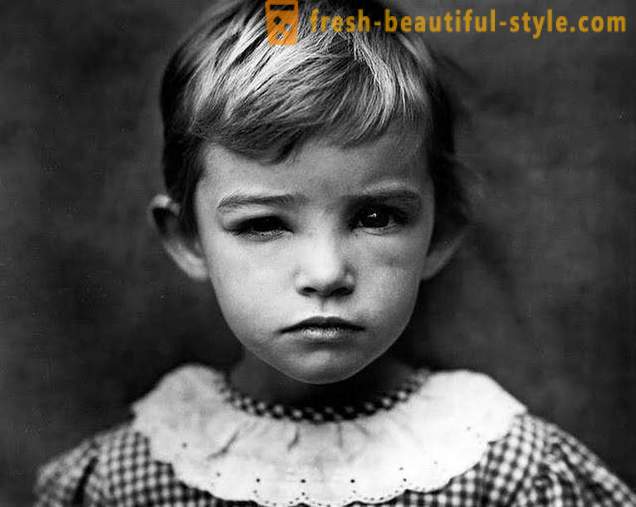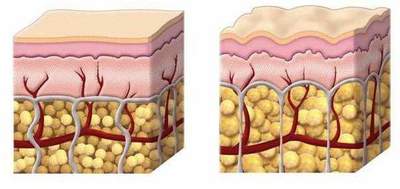12 psychological facts about parents and children from a family psychologist Michael Labkovsky

We publish excerpts from the lecture of Michael Labkovsky devoted to the fact that most of our psychological problems from childhood. Their problems must be solved, and the children to try to impose their own neuroses, advises psychologist.
1. Many people consider themselves to be introverts, but introverts, they were not always. Just as a child they were trying to share with mom and dad with their secrets and then found out that it is not interesting (once heard about, leave me alone and do not bother me). Hence the habit of worry all confidence and the belief that they, and their problems are even more so - not wanted.
2. A sense of security that a child should receive a child - the most important condition of his future mental health and life without neuroses.
But what kind of security can be discussed, if the parents are aggressive or unpredictable predictably negative? They always bad. The atmosphere in the family - the expectation of disaster. Now something has to happen. Fall, break it, the poison will die from the infection, "on KAMAZ will enter, he will smear on the asphalt," not to go to college - you will work as a loader in the "Pyaterochka".
That's where they - "small" psychological trauma! Their reason - not necessarily in a red-hot iron or incest. Negative comments hurt deeply by the fact that the constantly repeated. You know, there are European torture - rack, beatings, and there are Chinese, when immobilized person, for example, tickle feather until he goes mad. There is the same difference. 3. Most of the psycho-between the ages of 3 to 5 years.
4. Disposable psychological trauma is when: a child left in a dark room, and he was afraid; he tipped over boiling water; Mom and Dad were divorced; Funeral grandmother and other ordinary everyday stories, including violence - psychological, physical, sexual.
5. There psihotravmy recurring when a child lives among neurotics, who every day suffer or are aggressive, unpredictable, uncertain, and so on. D. Or in a kindergarten or school he bullied, insulted, that is a recurring situation.
6. Not all children are equally responsive to the trauma. One child's psyche can be stronger, the other weaker. In someone and serious tragedy does not leave a trace, and someone for life injured kitten death.
Once I had to explain to a 7-year old child that is bred to help him cope with psychotrauma. I say:
- What grade are you in?
- In the first.
- You do any of the girls like?
- Yes. Liza.
- And in the kindergarten he went?
- You met there with Lisa?
- No, there I was Lena.
- Where is she now?
- Well I'll explain! I was in school learning, how do I know where Lena?
- Here. A dad have a lifetime to live with your mother, so what?
Then he stopped crying interrupted reception, went to his parents, who were waiting in the corridor and said, I saw all gone ... 7. Stability, comfort, trust - that should get the children from their parents in the first place. If the parents are aggressive, humiliating, criticizing a child, he has, of course, undermines the credibility of life in general and people in particular. I have one friend who says specifically: people hate. Picks up dogs, cats, and it is clear why: the animals did not betray her, and my father gave.

8. A lot of people suffer from communication problems: they find it difficult to approach the other, to say something, to convey their thoughts and emotions, and the result is difficult to realize. And why? And because they are already approaching 4 years in a drunken mother, and she clearly expressed about the irrelevance of the issue of children, and about the inappropriateness of the child in this world. And she did this many times. Now the boy of 30, and it is clear that he even thought there is no Trust communicating with anyone whatsoever.
9. psihotravmy primarily creates a sense of fear and anxiety, resulting in phobias, panic attacks and distrust of people.
10. If you take a full family, but neurotic, and no father's family, from the psychological point of view, the second clearly preferable.
11. Yes, the roots of many problems from childhood. But parents, they are what they are. They raised you as best they could. You do not change, we must change ourselves! - rewrite the script for children, grow from it. If you do not want to psihotravmy were your children, behave so that they do not afraid of you to be predictable, so that through you they feel confidence in life. Stay if you do not close, then available, so you could always call, share something, ask. And if a child is something you said, try not to interrupt him and not give advice, but just listen.
12. If you
- are unable to trust anyone else;
- do not know how to express their feelings;
- is depressed ( "I can not fall in love", "I feel nothing");
- can not be realized either in the family or in the profession;
- do not want to (or afraid) to have children;
- you have a tendency to depression, and so on. E.
The
possible, all the consequences of children's psychological trauma.
It is important that you know that do not have a lifetime to pay for his unhappy childhood. And almost all fixable.













































